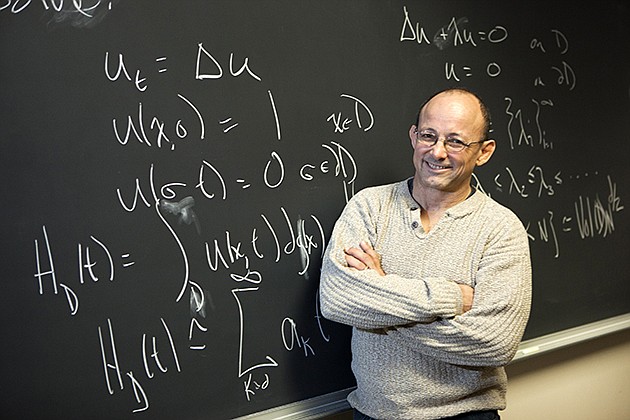- November 24, 2024
-
-
Loading

Loading

With the launch of its master's in data science program, New College of Florida welcomed graduate students onto its Sarasota campus for the first time in its 56-year history. The inaugural class of seven students started the program in February 2016, with a second class of seven students in August 2016.
The program was designed with a limit of 15 students per year, and program director Patrick McDonald expects to hit that number in fall 2017. “We were forbidden from recruiting students until after we were accredited, and that unfortunately came in after the recruiting season for graduate students for this fall ended,” he says. “But the interest level is going up as the word is getting out.”
He expects that 15-student limit to remain in place for the foreseeable future, despite New College's plans to increase its enrollment from 850 students this fall to 1,200 by fall 2022. (The honors college, which is part of the state university system, is awaiting approval of that proposal from the Board of Governors.)
“While I don't have plans to expand the graduate program, 1,200 is a lot more than 800,” says McDonald. “It may be the case somewhere down line there's a decision made to expand the graduate program appropriately. But right now we're going to have 15 students a year until the program is firmly established.”
Students in the program work with actual data from companies around the country such as Ancestry.com and Akamai Technologies, as well as local firms like CAST. They apply what they've learned in the classroom through paid internships in the field. “We've seen a lot of interest in our students and have had no trouble finding practicums for them,” says McDonald. “But we're still looking for more. There have been a number of local companies looking for our students, but we expected more.”
It will be easier for New College to forge these kinds of partnerships now that it's gotten several in place. “There was a lot of startup cost involved not from the point of view of capital but the point of view of time,” says McDonald. “When it comes to the details of contracts involving data and things like that, the college hadn't really been in a position to participate in that kind of thing before this program started. But it will be easier going forward.”
New College plans to hire additional faculty to serve the master's in data science and various undergraduate programs. And the success of the graduate program will pave the way for an undergraduate degree in data science.
“It was always the case that we were going to build a data science program for undergraduates,” says McDonald. “Now we're beginning to understand how we're going to do that.” The first step: infusing data into courses of study in the humanities, social sciences and natural sciences.
“All students who have any interest in seeing what data science is will be able to do that in their chosen discipline,” says McDonald. “The key is to build across the curriculum and keep it project centered.”
Whether the data science master's degree leads to other graduate programs at New College remains to be seen. “One thing I've learned is that you should never say never,” says McDonald. “I don't know whether or not other graduate programs are going to pop up, especially in an environment where the undergraduate population is slated to grow by 50%. If that happens, my guess is resources both human and physical are going to be directed to the undergraduate level, and people aren't going to be expanding until that's stabilized.”
Stabilization remains the objective for his own program. “We've made it through accreditation and made adjustments,” he says. “Now we can start to focus on what it was we wanted to do in the first place, which is build a first-rate data science program in the context of liberal arts at the graduate and undergraduate level.”